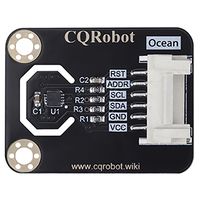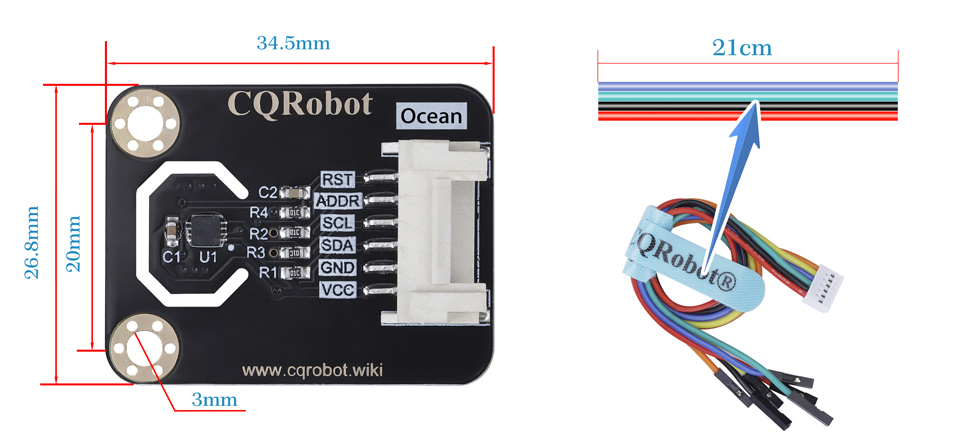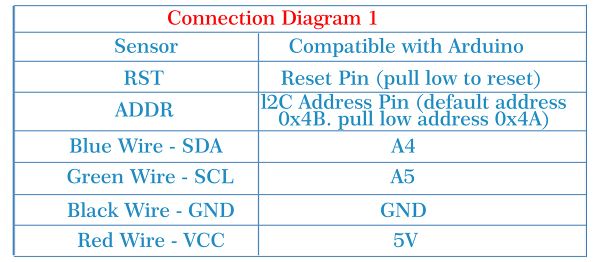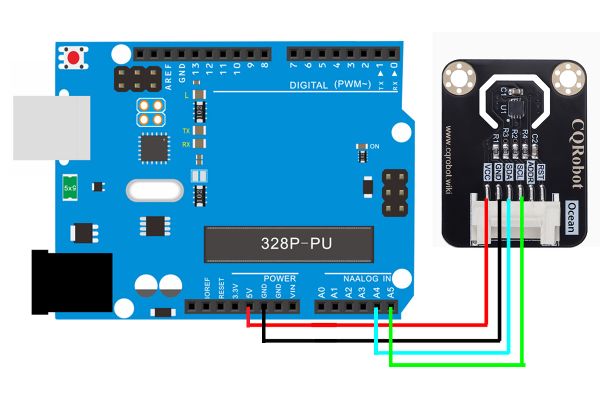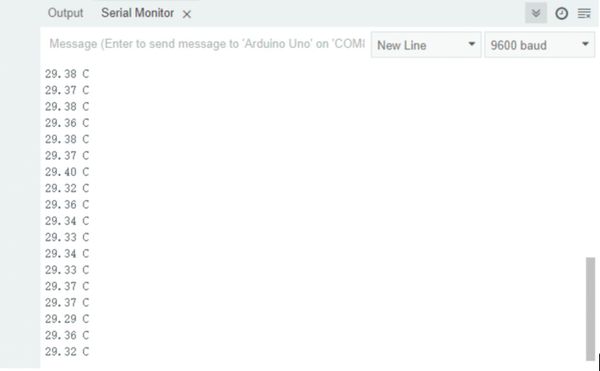Difference between revisions of "STS35 Temperature Sensor SKU: CQRSTS35A"
(→Example and Test Code) |
(→Example and Test Code) |
||
| Line 86: | Line 86: | ||
[[File:CQRSTS35A-4.jpg|600px]] | [[File:CQRSTS35A-4.jpg|600px]] | ||
| + | |||
| + | '''1.4 Code Description''' | ||
| + | |||
| + | *Repeat mode selection: You can adjust the data repeat mode by modifying the parameters in brackets; different modes correspond to different measurement times; | ||
| + | *Measurement time: The time required to repeat sample collection when outputting measurement data once. | ||
---- | ---- | ||
Revision as of 05:48, 6 December 2022
Description
The STS35 temperature sensor from Sensirion gives a fully calibrated, linearized, and supply-voltage-compensated digital output and has an outstanding accuracy of up to +/–0.1Degree Celsius.
It provides an operating temperature range of -40 degree selsius to +125 degree celsius and up to 1MHz I2C communication rate. Besides, the sensor can heat up itself to dehumidify the chip, which means it can function properly in a certain level of humidity.
STS35 Chip Specification Download
Size Display
Specifications
STS35 Temperature Sensor Board Specifications
- Operating Voltage: 2.15V to 5.5V DC;
- Heating Power Consumption: 3.6mW to 33mW;
- Output Signal: I2C;
- Measuring Range: -40 Degree Celsius to +125 Degree Celsius;
- Accuracy: Plus/Minus 0.1 Degree Celsius;
- Resolution: 0.01 Degree Celsius;
- Preheat: Less Than or Equal to 1.5ms (Typical, 0.5ms);
- Response Time: More Than 2s;
- Operating Temperature: -40 Degree Celsius to +125 Degree Celsius;
- Size: 34.5* 26.8 * 2 (mm) / 1.35 * 1.05 * 0.08 (inch);
- Mounting Hole Size: M3 (3mm); Pitch 20mm.
Ocean Interface Cable Specifications
- Cable specifications: 22AWGMaterial: Silicone
- Withstand Voltage: Less Than 50V
- Withstand Current: Less Than 1000MA
- Length: 21cm
- Line Sequence: Black-Negative Power Supply; Red-Positive Power Supply; Green-SDA; Blue-SCL; Yellow-ADDR; Orange-RST.
Example and Test Code
1. Arduino Connection Method
1.1 Software download link: https://www.arduino.cc/en/software
1.2 Download and Run the Test Examples
#include "ky_STS3X.h"
/*!
* Determine the IIC address according to the ADDR pin pulled high or low
* ADDR pin pulled low: STS3X_IIC_ADDRESS_A 0x4A
* ADDR pin pulled high: STS3X_IIC_ADDRESS_B 0x4B
*/
ky_STS3X sts(&Wire, STS3X_IIC_ADDRESS_B);
void setup(void)
{
Serial.begin(9600);
/*Wait for the chip to be initialized completely, and then exit*/
while(sts.begin() != true){
Serial.println("Failed to init chip, please check if the chip connection is fine. ");
delay(1000);
}
/*!
*@brief Set measurement frequency
*@param freq: in the enum variable eFreq_t choose from e2S,e1Hz,e2Hz,e4Hz,e10Hz model
*/
sts.setFreq(sts.e10Hz);
}
void loop() {
Serial.print(sts.getTemperaturePeriodC());
Serial.println(" C");
delay(1000);
}
1.3 Experimental results
Connect the wires as above, upload the program, open the monitoring window of the software and set the baud rate to 9600; you can see the current detected ambient temperature, as shown in the figure below:
1.4 Code Description
- Repeat mode selection: You can adjust the data repeat mode by modifying the parameters in brackets; different modes correspond to different measurement times;
- Measurement time: The time required to repeat sample collection when outputting measurement data once.
